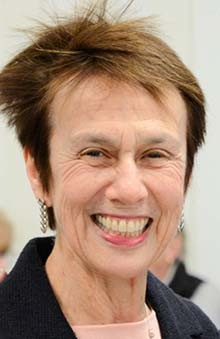As the terror of my Sunday School Hebrew Class, I pinched Albert Pizitz and yanked my younger sister out of her chair so we could run wild through the hallway. Was it a mark of poor Rabbi Fischel’s incompetence as a teacher that he tolerated such blatant disregard for the holy commandment to learn Torah? The answer shaped my understanding of Judaism.
I was opposed to Sunday School from the outset. Nonetheless, one fine September morning, my parents marched me and my siblings in our scrubbed, brushed and starched best selves to the first day of Hebrew class. I hated the desk, the walls, the other kids, and I was about to hate the rabbi when he called my name so softly that I barely heard him.
The rabbi introduced himself, again his voice so soft it might have been a whisper. As he handed me the Alef Bet textbook, his shirt slipped up to reveal his inner forearm. Of course, you know what I saw. I had been taught not to ask about or stare at or comment on tattooed skin. If a person volunteered to tell me what the tattoo represented, I had been taught to listen. But initiating a conversation or even engaging in a discussion on the matter was forbidden.
There was a degree of wisdom in these rules. Holocaust survivors were frequent visitors in our home, their wounds and pain entering the house with them. My parents had not hidden the truth from us, but they knew we were too young to express appropriate sympathy for those who had suffered while we had been romping carefree through early childhood. They meant our silence to be a sign of respectful witness.
But Rabbi Fischel just plain got the better of my curiosity. The tattoo, the soft voice, his increasingly indulgent patience with my truant mischief intrigued me. How could a victim of cruelty be patient with anything or anyone? I couldn’t do the forbidden, but I could at least ask my father who knew everything about everyone on the face of the earth.
“Who,” I asked, “was Rabbi Fischel?” The basics were familiar to me from tales of visitors passing through our home: He, like so many others, had been born in Lithuania, and like so many others, was raised in a learned household. He was sent along with so many others to a labor camp as a teenager, then to a death camp. But unlike so many others, he survived the fires of that hell. What happened after that?
“Well,” my father continued, “Rabbi Fischel learned that he had lost his entire family, his parents, his siblings, his aunts, his uncles, his cousins, his home, his world. Everyone. Everything.”
For once, I was speechless. Many of the visitors to our home had been through similar hells. But somehow, Rabbi Fischel’s hell was different. This rabbi, this person’s forearm, this survivor’s soft voice — all of it became suddenly and starkly real. I could see him as the boy he had once been, pinching his classmates and running through the halls of his school. And then I saw him alone and destitute after losing everyone, everything.
The following Sunday, I couldn’t stop staring at Rabbi Fischel. At last, he asked me, “Is something wrong? You are so quiet today.”
No, no, I was fine, but I thought the rabbi should know that I was truly sorry I was a naughty student. I would try to sit quietly like the other pupils.
“Oh, no. Please don’t sit quietly.”
I was stunned. What was the meaning of this answer? Suddenly I understood the double image I’d had of the rabbi, the carefree boy and the sad survivor. The rabbi could never again be that carefree boy. He was condemned to be the sad survivor for the rest of his life. But he was not about to let this happen to his pupils. Perhaps his past was sad, but he was here to make sure his pupils remembered their past as a time of laughter. Yes, Torah study is paramount. But there are many paths to Torah, the rabbi seemed to be telling me. All that matters is finding the path. In his wisdom, born both of Torah study and of his experience of horror, he saw that people like me would never find that path by sitting quietly. So pinch away, he was teaching me, and run around laughing, because your path to Torah study is through that Sunday School hallway.
For the remainder of our Sunday School years, my younger sister and I always received the pupil-of-the-year awards. We came by those kudos honestly. We had found our paths to Torah study. Thank you, Rabbi Fischel, for the lasting lesson of the commandment to learn Torah. You were the best pathfinder a Sunday School pupil could ever have.
Epilogue: Rabbi Fischel eventually went to Indiana University, where he established the first Jewish Studies program in the country. Such are the heroic figures who rise to the status of
myth in our personal narratives.

Get Social